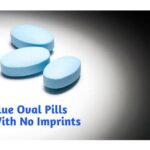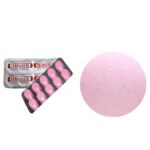What To Do If Pill Identifier Fails

Before the advent of pill identifiers, patients, personnel at poison control centers, hospitals, medical professionals, and others previously had a difficult, if not impossible time identifying drug products. The reason was that drug product identification-data submissions by companies involved in the manufacturing or distribution of drugs were not mandatory. As a result, a comprehensive list of products and their respective imprint information was not collected and therefore not available to members of the public and the medical community.
That all changed in 1995, following the implementation of the Federal regulations on imprints by the Food and Drug Administration (FDA) which required all approved prescription and over-the-counter solid, oral dosage form medications in the U.S. to have an imprint. This also applies to biological drug products and homeopathic drug products, unless otherwise exempted in the FDA Code of Federal Regulations 206.7. Solid oral dosage forms are defined as capsules, tablets, or similar drug products intended for oral use.
The imprint code, when used in conjunction with the product’s size, shape, and color, permits the identification of the drug product, the active ingredient(s), strength, and the manufacturer or distributor of the product.
The purpose of regulating imprinting is to enable identification of the pill ingredients and drug manufacturer by law enforcement officials, health care providers, and the patient or caregiver.
• An imprint is defined as any single letter, number, or combination of letters and numbers, including words, company names, National Drug Code, or a mark, symbol, logo, or monogram. The drug manufacturer determines the imprint for specific drug products.
• Identification of the drug product requires verification of its active ingredients and its dosage strength. Inclusion of a letter or number in the imprint, while not required, is encouraged as a more effective means of identification than a manufacturer’s symbol or logo by itself.
• Homeopathic drug products are required only to bear an imprint that identifies the manufacturer and their homeopathic nature. There are no FDA-approved homeopathic products. Any product being sold in the U.S. that is marked as homeopathic is being marketed without FDA evaluation for safety or effectiveness.
There may be circumstances where two products have the same imprint code. For example, an imprint code might be reused after a drug product has been discontinued. Foreign products may also have the same code as an FDA-approved imprint.
What to do if pill identifiers fail to identify a pill
There are a number of different reasons why you might need help with pill identification. Maybe you misplaced a drug label or forgot what the pills in your weekly pillbox are. Perhaps you found some pills in your loved one’s pocket while doing the laundry, and you’re worried they might be misusing them.
To identify an unknown pill, people mostly use online pill identifiers which include:
- Drugs.com Pill Identifier
- WebMD Pill Identifier
- RxList Pill Identification Tool
- Epocrates Pill ID
- CVS/Pharmacy Pill Identifier
- iPharmacy Pill Identifier
- Pill Finder
- Prescription Pill Identifier
- ID My Pill.
Pill identifiers basically help you identify prescription, OTC, generic, and brand-name drugs by pill color, size, shape, and drug imprint. However, sometimes pill identifiers might fail to identify the pill.
A review by consumer reports indicates that none of the pill identification apps are flawless, but Drugs.com and Epocrates, designed for iPhone and iPad, had the best user experience and the most accurate results. Both apps were easy to use, glitch-free, and provided accurate and comprehensive drug information, including dosing instructions, side effects, interactions, warnings, and high-quality pill images.
The Drugs.com app, the user-friendlier of the two, also provided links to relevant news about each drug. And Epocrates, which appears to be geared toward clinicians, offered pricing data from a drug-price comparison website, GoodRx.com. Drugs.com will cost you $1 with no registration required; Epocrates is free but requires you to create an account.
If you are in possession of a pill and you match your drug imprint (Pill ID) to the pictures and it failed to identify your medications, do not use the pill, call your doctor or pharmacist.
In the case of generic medications, pills can change in size and color each time you fill the prescription, because pharmacies can change the drugs from different manufacturers every so often. So if you notice a change, ask about it. If a pharmacist gives you a prescription and you’re not familiar with the appearance, ask them to check it again.





